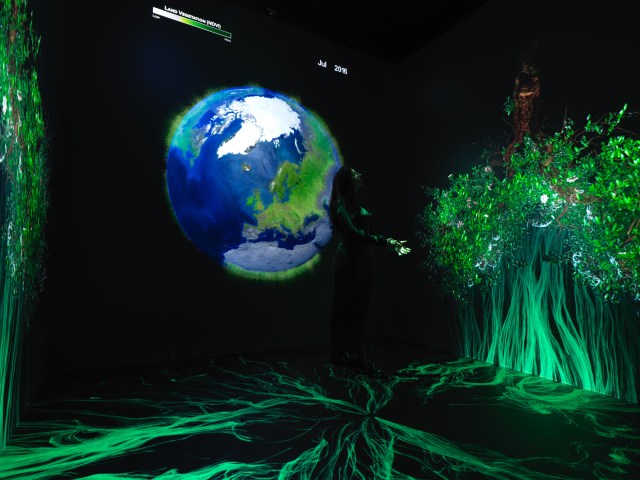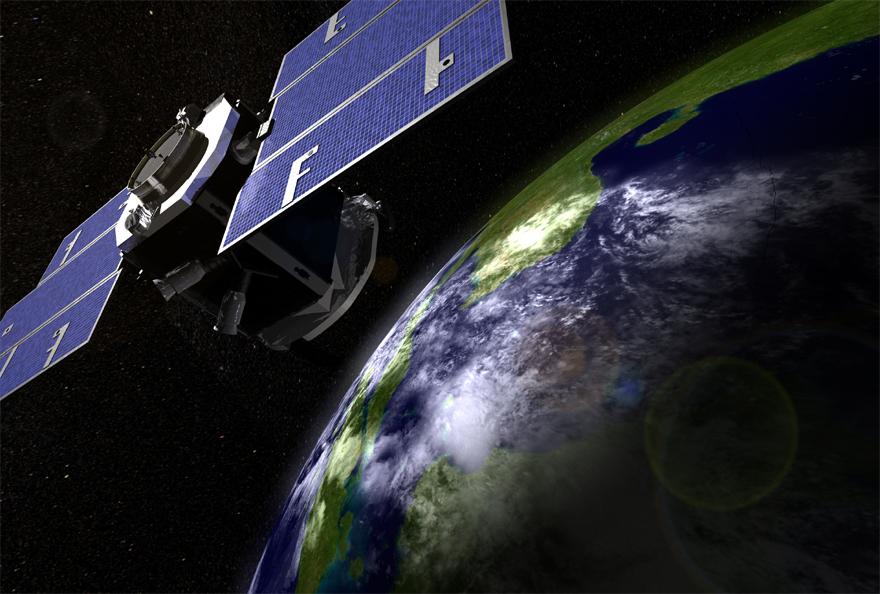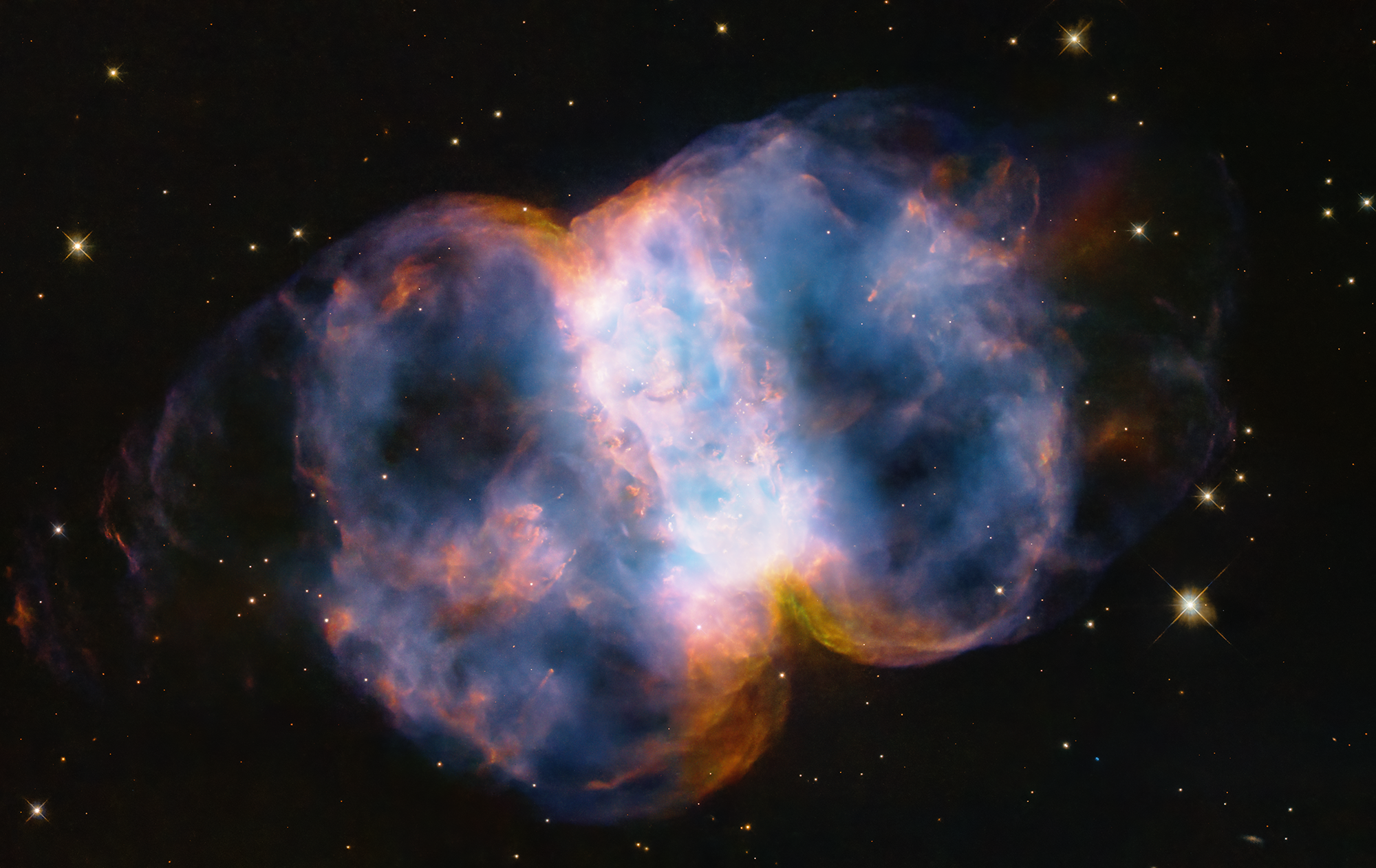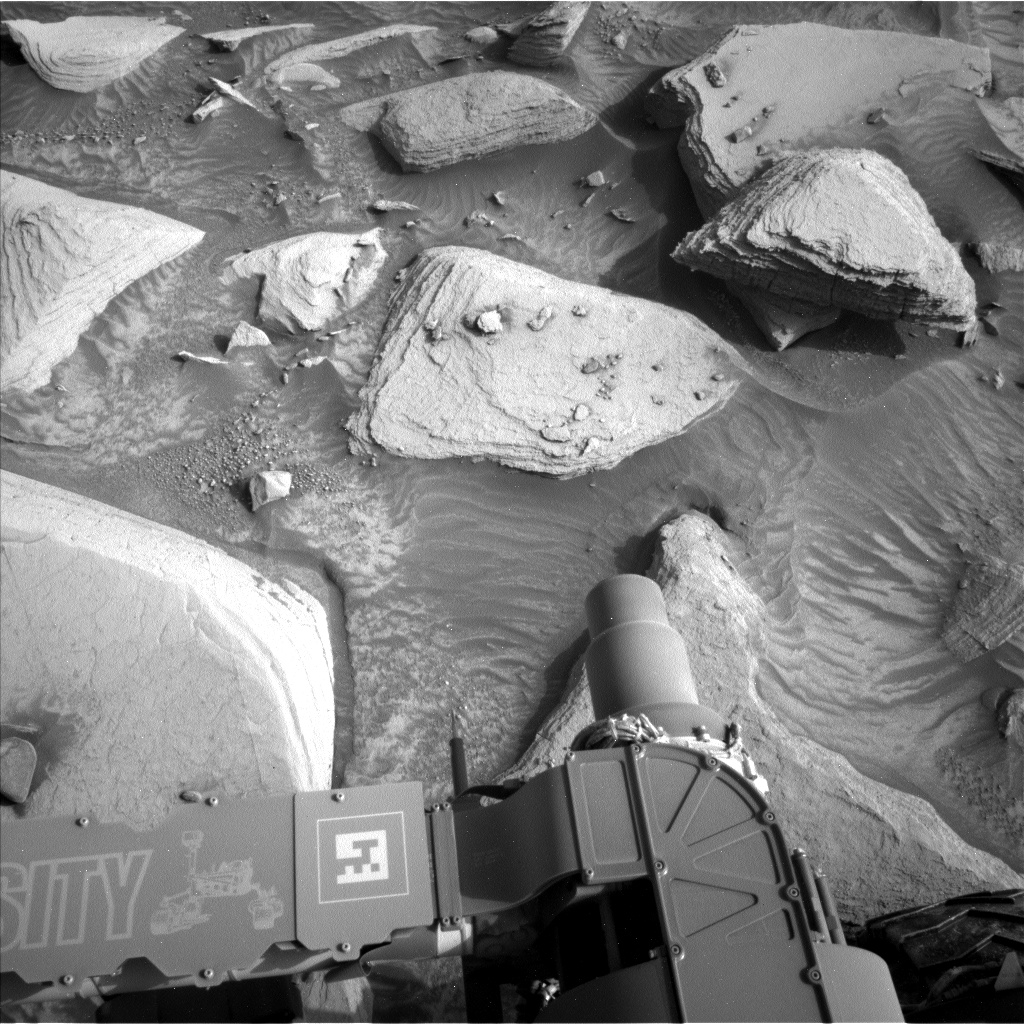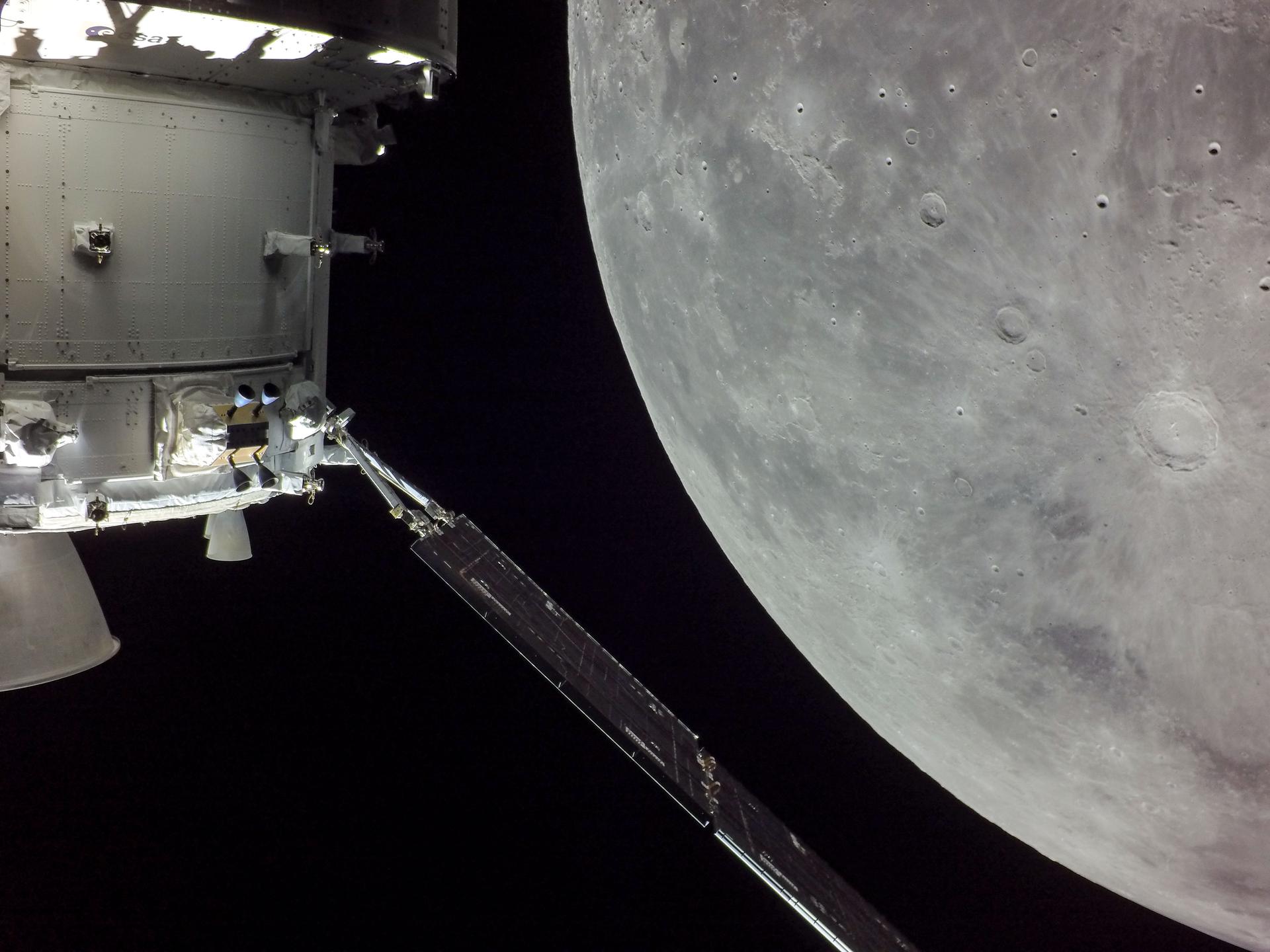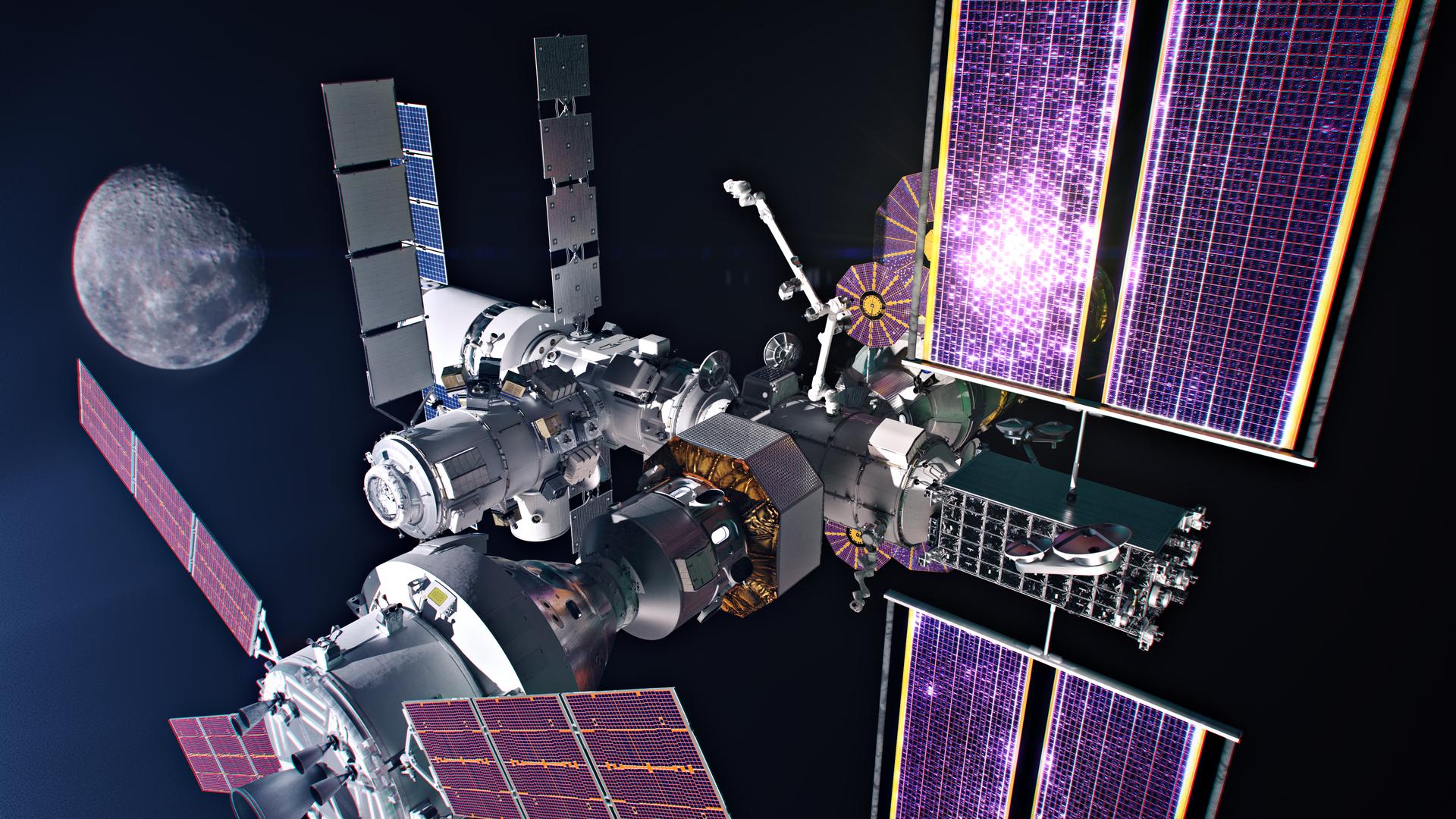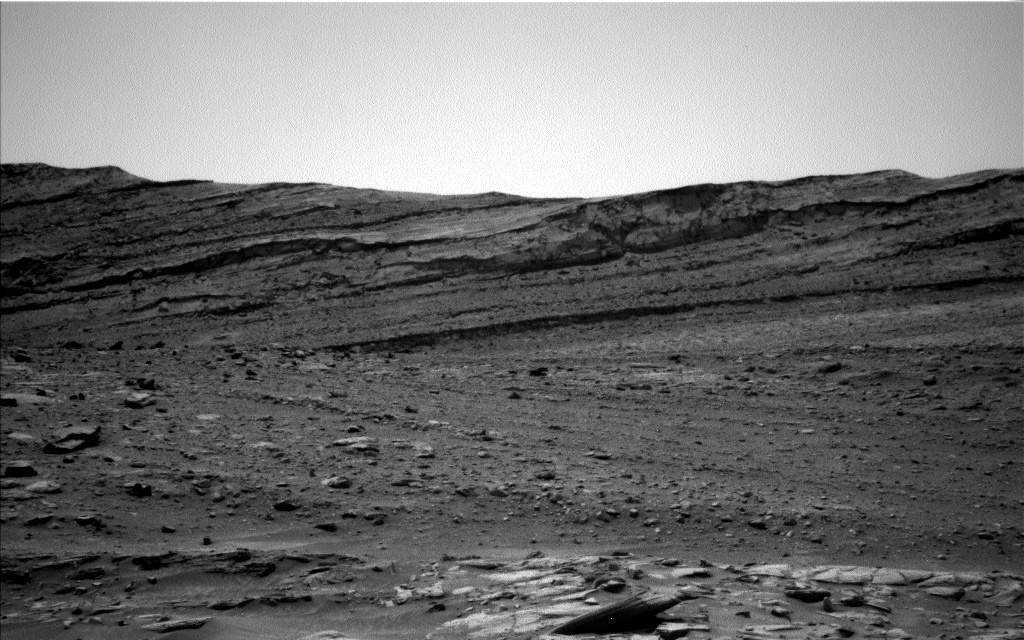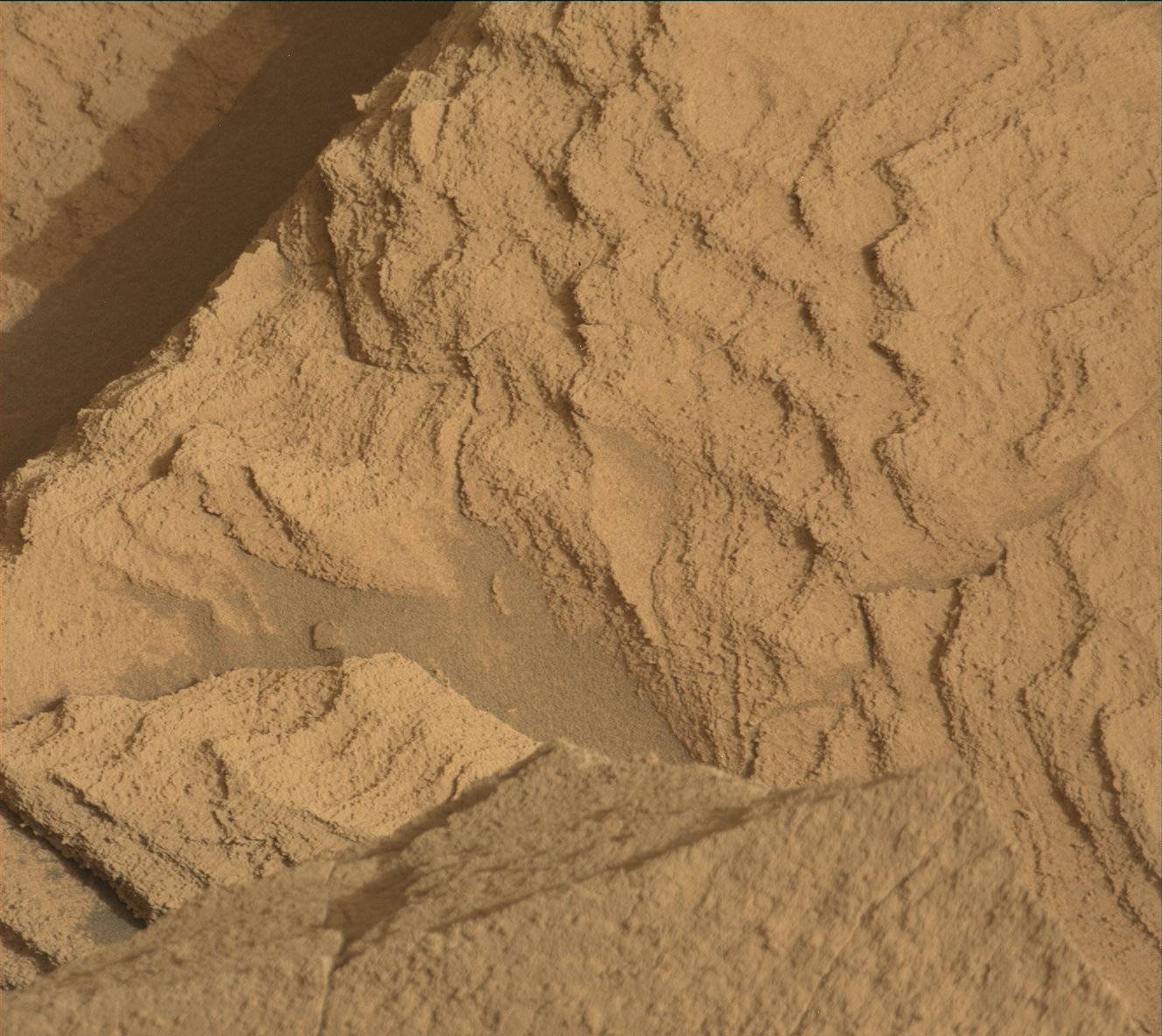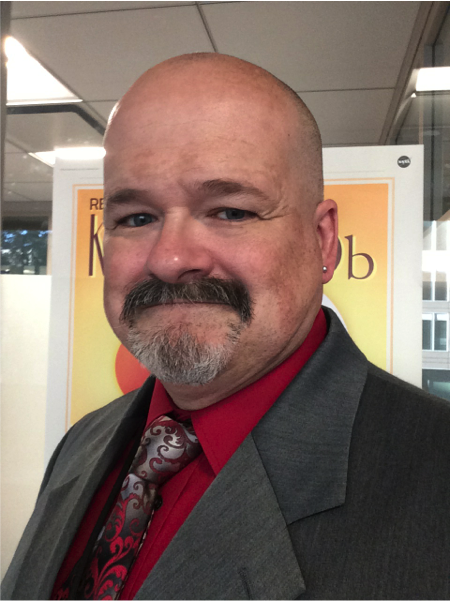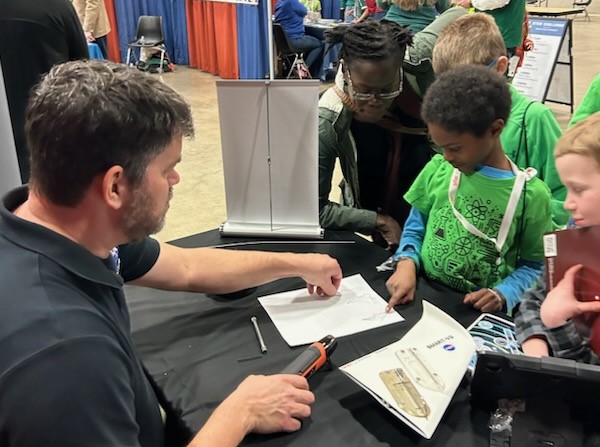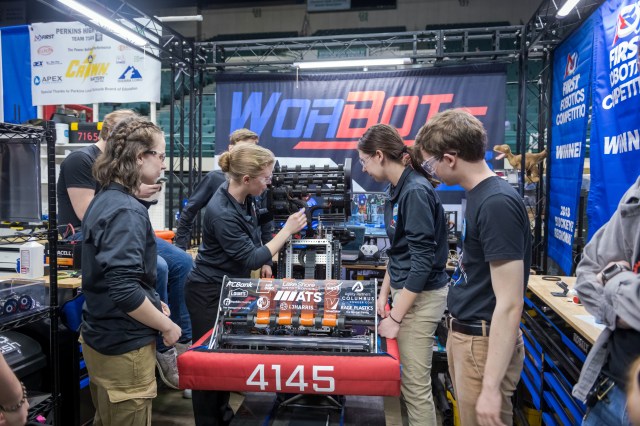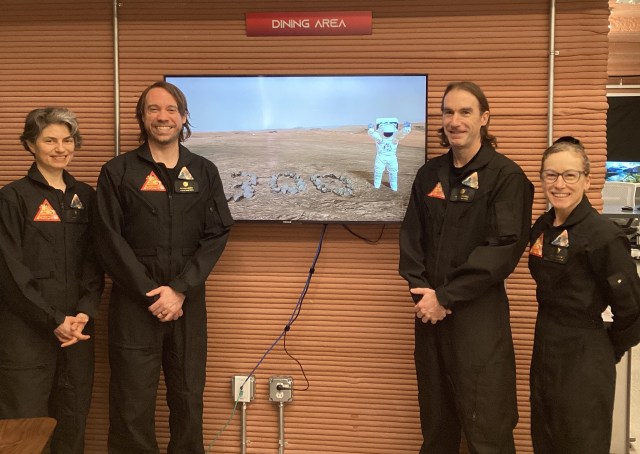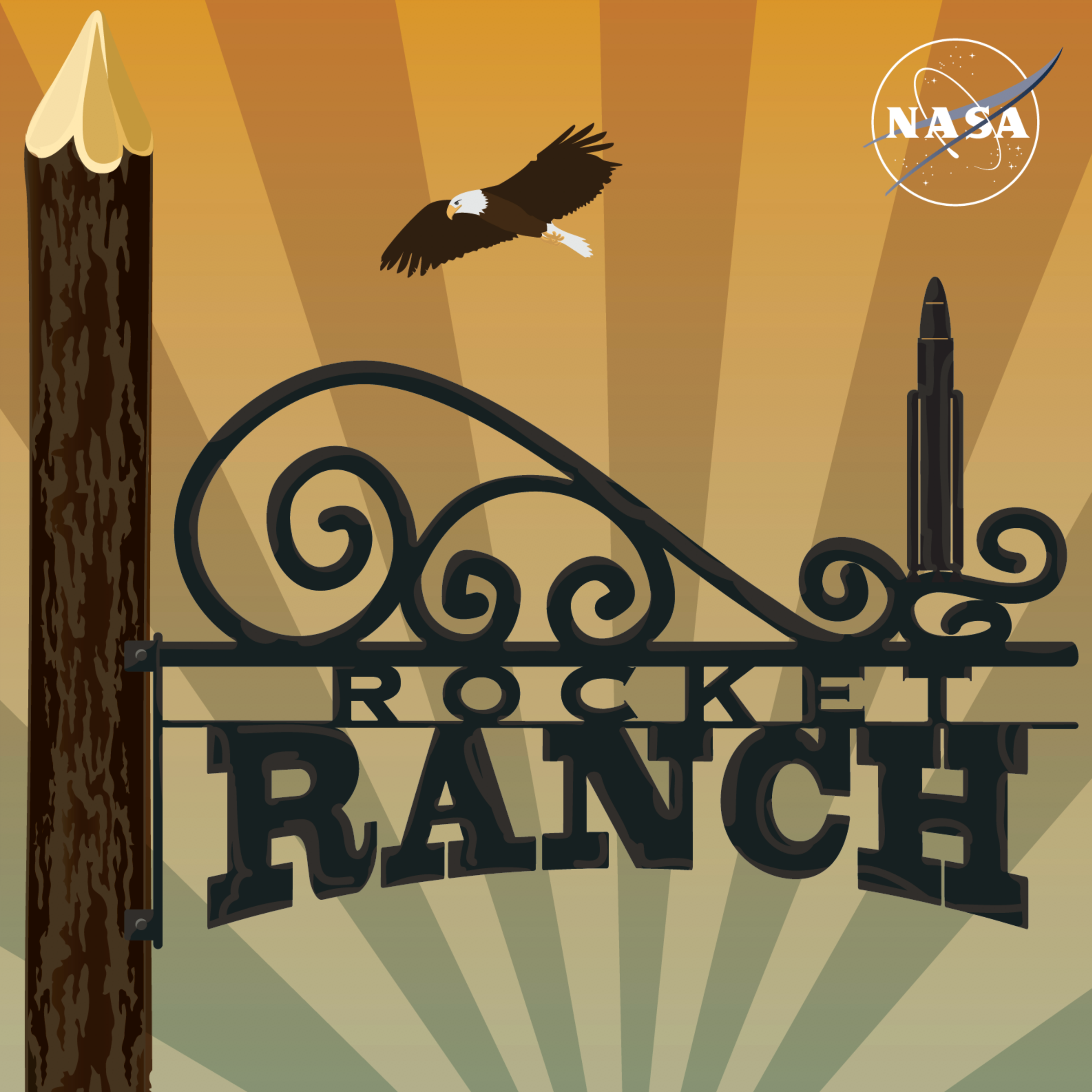
Marie Lewis:
From the women whose calculations helped land the first man on the Moon, to the first Black astronaut to live aboard the International Space Station for an extended stay, NASA has stretched the limits of what humankind can achieve due in no small part to the contributions of Black Americans.
Sheldon Lauderdale:
There have been a number of people who have helped me a great deal throughout my career here at NASA. And they feel like family members to me.
Marie Lewis:
The Rocket Ranch welcomes Sheldon Lauderdale, Program Analyst for NASA’s Commercial Crew Program, which last year returned human spaceflight to orbit from U.S. soil. Shel will tell us what it’s like to be part of the NASA family. He’ll share where he draws inspiration, plus, he’ll talk about his role supporting NASA’s efforts to expand diversity and inclusion to empower the next generation of explorers. I’m Marie Lewis, and this is the Rocket Ranch.
Launch Countdown Sequence:
EGS program chief engineer verifying no constraints to launch. Three, two, one, and lift off. Welcome to space.
Marie Lewis:
All right. Welcome, Sheldon Lauderdale. Thanks for being here.
Sheldon Lauderdale:
Thank you for having me.
Marie Lewis:
You are the Management and Program Analyst for NASA’s Commercial Crew Program. I know you’re currently working a detail assignment to the Launch Services Program. But in a sentence or two, can you sum up what does that job entail?
Sheldon Lauderdale:
So I basically manage the budget and the people for the Launch Services Program and the Commercial Crew Program. I help with that function. So I’m a budget guy. And so I’ve been a budget guy my entire career, and that’s what I’m doing now. So it’s pretty exciting. As you know, nothing moves without money.
Marie Lewis:
Exactly.
Sheldon Lauderdale:
So I always have to remind my technical friends of that fact. So yeah, that’s what I’m doing.
Marie Lewis:
Absolutely.
Sheldon Lauderdale:
I’ve been on the detail about six months, so it’s pretty exciting.
Marie Lewis:
Okay, great. Well we certainly appreciate the job that you do.
Sheldon Lauderdale:
Yes.
Marie Lewis:
So this year’s Black History Month theme is family. And I know we’ve talked about this a little bit before, but what does it mean to you to be part of the NASA family?
Sheldon Lauderdale:
Sure. There have been a number of people who have helped me a great deal throughout my career here at NASA, and they feel like family members to me. I will acknowledge a few of them today. This is by no means all of them. Mack McKinney, Roslyn McKinney, Nap Carroll, Jim Jennings, Pat Hanan, folks like Cheryl McPhillips, Connie Milton, Roselle Hanson, Bob Sampson. I could go on and on and on. And the cool thing is that a lot of these folks were higher grades than me or managers even, and they treated me just like a normal person. They didn’t have an air of superiority or invincibility about them, and they really helped me along the way. And so I’m very grateful for those individuals. And they do feel like a part of my family because I’m working with these folks… And folks that I’m working with right now.
Marie Lewis:
Mm-hmm.
Sheldon Lauderdale:
Right? I work with these people all day, every day, not during COVID of course. But they feel like family members to me. So that’s just a little bit of what family means to me being out here at NASA.
Marie Lewis:
And the picture of the NASA family has certainly evolved over the years. I know generations ago, NASA was by all appearances dominated by white males, and that makes me curious to ask you when you were growing up, was NASA something you aspired to? If so, what was the inspiration? And if not, what changed?
Sheldon Lauderdale:
I did not aspire to work for NASA. I didn’t dream about what was out in space. I mean I looked out there and tried to count the stars, of course, like all kids do, but I had no desire, if you will, to work for NASA. I was more interested in working for Wall Street, that’s what I wanted to do. And so my career path and it’s classes that I took, et cetera, led me down to that path.
Marie Lewis:
Mm-hmm.
Sheldon Lauderdale:
And I didn’t get a chance to do that. So I took a little detour, I worked in banking in Alabama at some places. And I did an internship down here at NASA back in 1994. Again, met some awesome people during my time there, Mr. J. Diggs, Miss Evelyn Johnson, the folks that I mentioned earlier. And they were at a certain level at that time. And I enjoyed my experience then, but I said I’m not working for the government. I’m just not going to do it.
Marie Lewis:
And here you are.
Sheldon Lauderdale:
And so my mother worked for the government and she would always tell me, “You need to get on with the government. You need to work for the government.” And so I finally listened and an opportunity came up at my school back in 2001. And I interviewed and I got the job. And so I’ve been here ever since. So now I’m mad that I didn’t start work right away because I’d be five or six years closer to retirement. But that’s how the story goes sometimes.
Marie Lewis:
And so you spoke about being hired by NASA in 2001 was not initially something you aspire to. What was it like when you were first hired? Did you feel like you’re a part of the NASA family? And how did the feeling then compare to where you are now and the feeling that you have now?
Sheldon Lauderdale:
Yeah, I always felt like I was part of the NASA family because I already knew people before I got here. And so as I mentioned, there were some folks who I worked with during my internship that was still here, thankfully. And so it was an easy transition for me in terms of the people.
Now, it wasn’t so much an easy transition in terms of the work, because I was used to working with companies where the focus was making money, and with the government, that’s not the focus. And so that took a little bit of an adjustment period for me. But having those people and those connections that I had already really helped me to get into a groove here at NASA. And in a lot of ways, it’s very similar today as it was then. I’ve known a lot of folks, I knew a lot of folks then and they’re still here. Some of them are getting ready to retire, their hair’s getting a little grayer and whatnot. And a lot of the management looks the same. You could say that that’s consistency or you can say we still got a little room to grow in that area. I choose the latter. But overall, the feeling of togetherness and family is pretty similar for me now in relation to when it was then. So not much has changed in that area for me.
Marie Lewis:
You threw out several names of people who inspired you past and present, and some of them are on this monitor wall behind us.
Sheldon Lauderdale:
Yeah.
Marie Lewis:
Can you dive a little deeper into what it was, what were the specific traits that some of these people had that made you feel inspired to go farther? I know you feel… We’ve talked about NASA having some room for improvement. What were the things about these individuals that really made you feel inspired to do more?
Sheldon Lauderdale:
Well just how they conducted themselves. Whenever I asked them for help, they were always there to help me. Delores Abraham, who is up here on this wall, I could call her at any time of day, any day of the week and ask her a question about something and she would be there to help me. Now, I always owed her after the fact now. I didn’t always pay it, but she was always there, never denied me one iota of her time or her effort. And so those types of people inspire me, the people that I just mentioned a second ago, and many others, folks that I work with today. I’m always looking at each of those individuals to see what they do well and I try to incorporate that into my attitude and my going about business of being who I am. And I also look at people to see what not to do as well and make sure I don’t incorporate that. But those are the folks that inspire me.
And also my family. I want to make sure I do well for them. I want to make sure that I’m making them proud. I want to make sure that the people who believed in me here at NASA, who hired me and the folks who are my official and unofficial mentors here are proud of me. So those are the folks that inspire me. And all these people inspire me because I know that they had a tough road to get to where they are. So they are an inspiration for me as well.
Marie Lewis:
I listen to you speak, and I’m going to bring up something that I know strikes a nerve for a lot of people, but I feel like we can’t really have a conversation about Black History Month without acknowledging this. In the aftermath of the George Floyd tragedy last year, there was turmoil around the country. We here at NASA, we’re getting ready to launch the first Americans back into space from U.S. soil in almost a decade, it was really a lot of ups and downs last year for a lot of people.
Sheldon Lauderdale:
Mm-hmm.
Marie Lewis:
And a lot of that we’re still experiencing. And I know that across the agency, we had a lot of small group conversations where people could just listen to each other, no judgment, no taking political sides, just let’s just talk. And in one of those conversations, I listened to you in a small group of people from the Commercial Crew Program. And I was struck by your words. They really had an impact on me and that’s part of the reason I wanted to reach out to you today. How did you feel speaking out in that group about the way that that incident and other incidents you’ve experienced have shaped how you show up in NASA and in the world? And do you think those conversations have been helpful? Do we need to do more of them? Just want to get your take now that we’ve had some time to reflect.
Sheldon Lauderdale:
Yeah. We definitely need more of them. I will touch on the other question first. And that is that I always try to carry myself in the best light possible because I know that I not only represent myself, I represent a whole swath of other people, either fairly or unfairly. And that’s just the times and the situations that we live in. And so I have to be very careful not to offend or not to make mistakes or not to go sideways in a conversation, or what have you. And that’s a big burden to bear. And a lot folks like me have to bear that burden and other folks don’t have to bear that burden. That’s just a fact. And so what I try to do is just make sure I stay as smart as I can, as honest and as inviting as I can so that I can help to touch back on the subject of family, expand that NASA family and make sure everybody feels included.
We do need to have more of these conversations and these conversations will be fruitful if you have people who are fair, if they are truly genuine people. If you don’t have people like that, then these conversations are not going to be successful at all. And there are some people out there like that. So we have to figure out a way to move around those people and get to folks like you and other folks that I know who are more in the middle and more moderate in their thinking, and try to expand that base a little bit so that we can continue to make progress. We’ve been having these problems since the Niña, the Pinta and the Santa María got here. That’s a long, long time. And so we’ve been having these starting conversations for many years, and it’s time to end these conversations. We need to start moving at a rocket’s pace and not a snail’s pace anymore.
And the things that I saw last year, to be honest with you, I’d never thought that I would see in my lifetime. I mean there were more people out there marching and protesting. I’m not for the extracurricular stuff that was going on, but there were a lot of people who look like you who are out there. And so I never thought I’d see that in my lifetime. And so that’s encouraging, and I have hope for the future. And I just hope that all of the right folks are involved in the conversation so that we can move this agenda or conversation forward even more.
Marie Lewis:
What does that look like? I mean you talked about the conversations are helpful, but they only go so far.
Sheldon Lauderdale:
Right.
Marie Lewis:
How do we, as an agency, continue to embrace diversity and inclusion as a core value?
Sheldon Lauderdale:
Well you have to do it, right? It’s one thing to talk about it and to pacify someone about it so that they can stop talking about it for a time being, but you have no intentions on enacting any change. We have to be about the business of recognizing folks like me and others. We have to be about the business of not only hiring these people, but then also actively promoting these people. It takes all phases, all right? It’s one thing to say I’ve interviewed 20 African-Americans, but I didn’t hire any of them. Then what good is that? That serves no purpose. And so that’s how you advance the agenda. Folks like me, and I’m just speaking for folks like me, there is a whole swath of people out there who are misrepresented.
But for folks like me, we are just as capable of doing the job. We can do the job. We can speak articulately, we can handle meetings, we can do the technical stuff. We just need not only the opportunity, but the actual selection to do the job. And so it’s going to take folks like you to say, “Okay, we got to make this a more perfect union,” and this is how we can start doing that.
Marie Lewis:
My last question for you, and I think you’ve kind of already answered it, but I don’t know if you want to expand on this, is how are you working to try to empower the next generation of explorers, Black explorers and everybody else who wants to be part of the NASA family who wants to explore and go farther than we’ve ever gone before?
Sheldon Lauderdale:
I try to tell people that you don’t have to be an astronaut or an engineer to work at NASA. You can be a doctor, you can be a lawyer, you can be an architect, you can be a graphics person. You can be someone who can handle conferences and that sort of thing. You can be someone who understands contracts. And so I think if you open it up to that, then you will get more people interested and feel that they can be a part of NASA and contribute to the missions of NASA. Another big thing that I enjoy that NASA does is bring your kids to work day. And so I brought my kids out here and they loved it. And they always ask me, “When can we go again?” I say, “We can’t go now, all right?”
Marie Lewis:
Not right now,
Sheldon Lauderdale:
But that is a thing that can inspire the next generation of folks as well. And then I have people all the time who ask me how they can get on with NASA. And I talk about the pathways, program, et cetera. And so those are ways, it may be a conversation in a grocery store or in a shopping area, what have you. And that’s how you can inspire the next generation of explorers. And I think NASA makes the job easy, all right? Because what we do out here is good stuff that people want to be involved with and want to be a part of. So we don’t have to do that much selling, right?
Marie Lewis:
And in the name of, I know I said it was my last question, but I do have one more, as we’re sitting here with these, these remarkable people behind us, and this is obviously a tiny, tiny sampling of the people who have literally blazed a trail, what haven’t I asked about that you want to talk about? Because if you remember, when I first approached you about having this conversation, it really struck me that you said, “Nobody’s ever asked me before what I think about this,” and it made me sad that you’d never been asked. So I want to give you the opportunity to share if there’s something that I haven’t asked about that you think is really important for people to know about Black History Month and your experience.
Sheldon Lauderdale:
Well thank you for that. And it may not seem like it, but I am an introvert. It may not seem like it after this interview here, but I am. But thank you for this opportunity. I would just say thank you to those folks who overwhelmingly look like you who are trying really hard to do the right thing, and those that are doing the right thing. I don’t think you guys get enough credit. So I want to just make sure that you know that I see you, I acknowledge you and I thank you. And keep doing what you’re doing. You have my backing and my support for what that’s worth.
Marie Lewis:
Well I appreciate that. Thank you for those words.
Sheldon Lauderdale:
I would also like to take this opportunity to thank some people, my parents, my grandparents, my great-grandparents, and all of my relatives who survived slavery and Jim Crow to allow me to be here today. And I’ve never publicly acknowledged them before, but those are my true heroes. They should be all on this board here. They’re all on my mental board. And my great, great, great grandfather, his name was Isaac, was a slave. And I often wonder what he would think of me today. And so I hope, I can only hope, that I am making him proud, because I know I’m a far away dream from what he thought as a young kid or as a young man. And then finally, I will talk about, I will speak to the people who think that folks like me complain too much, or there are no issues or no problems. And I would offer a scenario to these people.
And that scenario is let’s trade places and let me tell you what that would mean. That would mean people like me would control the financial system, control the legal system. We get to make the laws. We get to control the school systems to determine who gets suspended or expelled. We get to control the judicial system. And I will share a story with you, I’ll share the story that I shared briefly when we had the tag up there. I can remember four Caucasian police officers in 1989, I said 1988 when I told the story before, but it was actually in 1989, had an average sized African-American woman in handcuffs. She wasn’t yelling, she wasn’t screaming, she wasn’t disrespectful. The one police officer who didn’t have on a uniform, he had on all brown, he was the biggest one so I’m assuming he was the chief or the sheriff. As he was putting her in the police car, he just indiscriminately started beating her in the head and in the face.
She didn’t do anything. She’s handcuffed and she’s a woman. And my heart sank that day and I was very angry. And when she left the parking lot, I have no idea what happened to that woman after she left the parking lot. But I know nothing good happened to her. And I can guarantee you 100% that nothing happened to those police officers. Absolutely nothing. Just imagine for a moment that those situations or that situation was reversed. Just imagine. But on the flip side, we’ll give you guys affirmative action. You can be Beyonce, you can be LeBron James, you can be Michael Jackson, you can be Oprah Winfrey. You can also be Martin Luther King, Medgar Evers, Jimmy Lee Jackson, the four little girls in Birmingham at the 16th Street Baptist Church. You could be Willy Edwards. You could be Jimmy Lee Jackson. You could be Willie James Harmon.
And if you don’t know any of these people, that’s okay. You can Google and look up the stuff that they went through. And if you can look at that with a pure mind and a pure heart and say you would be okay with that, then I don’t know what to say. I would argue that 0% of people would be okay with that stuff happening to them. And so if you’re not okay with that stuff happening to you, then why do you think we are okay with this stuff happening to us? We live in a great country. This is the greatest country in the world. I believe that. We live at NASA, or we work at NASA, which is one the greatest places on Earth to work. I will say that we still have a lot of room to grow in terms of diversity. All we’re asking is for the same things that everyone else has, nothing more, nothing less. Far too often, we deal in the realm of three worlds, which is the objective world, the subjective world and the personal story world.
And all of those worlds have some merit. But far too often, folks like me get lumped into that subjective world. And it’s always a yeah, but. Yeah, but, yeah, but, yeah, but, yeah, but. And that’s just not right. And so we’ve all seen some things and gone through some things and had to maneuver our way around certain scenarios here at NASA, but we shouldn’t have to. Some people get to walk right through the front door, no inhibitors, no barriers, no nothing. Some people get to walk to the front door and stand for a moment and then they get let in. And then other folks have to find the door, then they have to navigate landmines and barbed wire fences and get through the molten lava, and then slay the dragon and then get to the front door which is reinforced by 10 inch thick steel. And then if we get through that, then we might achieve what we set out to achieve.
And so the final points I will make is that I’ve heard that diversity compromises the mission. That’s the most outlandish thing that I’ve ever heard. If anything, diversity enhances the mission. And so I hear people all the time say, “Well life isn’t fair.” I agree. I agree. But it’s unfair because people make it unfair. It’s not some nebulous thing that’s just floating around touching people saying, “Your life is fair. Your life is fair. Your life is unfair. Your life is unfair.” No, it’s people doing this. And so I will reiterate this again, is that I’ve met a lot of awesome people here at NASA. A lot of them don’t look like me. I’ve met people from Haiti, from Jamaica, from Panama, Puerto Rico, Cuba, Chicago, New York, Los Angeles, Alabama, Georgia. And so it’s going to take those right minded people, those people who have goodness in them, all right?
And they’re going to have to just be a little more bolder with their goodness because good is the only thing that can drive out hate. And we say that all the time, but that’s a true statement. And so if we all collectively, because we’re all related, right? If you believe in the good book, we’re all related. We all come from Noah. And I know that we sometimes fight with one another, but we’re still family, back to the NASA family theme. And so we just need to make sure that we see each other, that we hear each other, and that we acknowledge each other and spend more time to confirm, confirm, confirm, as opposed to deny, deny, deny. And I guarantee you, if we do that, this place, which is already awesome, will be a much better place. I guarantee it.
Marie Lewis:
Thank you so much, Shel. Really appreciate your time. Powerful words. Thank you.
Sheldon Lauderdale:
Thank you. Thank you all for having me.
Marie Lewis:
A special thanks to Sheldon Lauderdale, Program Analyst for NASA’s Commercial Crew Program. To learn more about everything going on at the Kennedy Space Center, go to nasa.gov/kennedy. And if you’d like to find out what’s happening at our other NASA centers around the country, go to nasa.gov/podcasts. A special shout out to our producer, John Sackman, and editor, Mike Chambers. And remember, on the Rocket Ranch, you’ve got to keep looking up.

